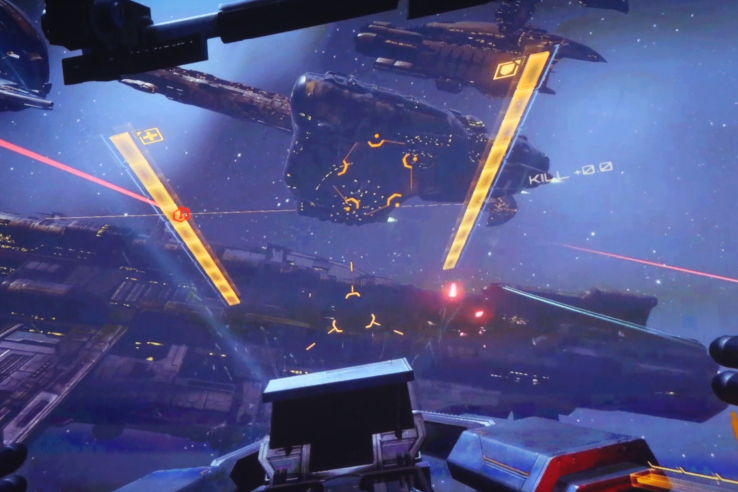

In another sign of scales majorly falling off of eyes where VR is concerned, games developer CCP Games — which made a big early bet on virtual reality gaming — is pulling the plug on two of its studios that had been working on VR titles.
The news was reported earlier by GamesIndustry.biz which obtained the following statement from CCP about the move:
CCP Games is restructuring its studio locations worldwide, driven primarily by reduced investments in virtual reality and an increased focus on PC and mobile games. This has resulted in a reorganization and centralization of its five studios across the world to three in Reykjavík, Shanghai, and London.
In the coming weeks, CCP will undertake the following proposed measures: The closure of its Atlanta studio with VR development moved to London, the sale of its Newcastle studio, and the elimination of a number of positions worldwide. The company´s Shanghai studio will be reduced and refocused to support growing business in China through local partnerships. CCP has provided severance packages and job placement assistance for all those affected.
There are no changes to ongoing plans for EVE Online and the company´s product pipeline is strong. In early October CCP confirmed continued development of its PC FPS game, ‘Project Nova’ and announced a new mobile game, ‘Project Aurora,’ both set in the EVE Universe. Both projects are on track and unaffected by these changes. CCP will announce additional game releases directly or through partnerships over the next 18 months across PC and mobile.
Two years ago, as the most recent hype wave was once again raising hopes around the tech, CCP announced a $30 million raise from Novator and NEA — specifically for developing VR games.
The veteran games developer was seeking a second act for its 12-year old MMORPG, Eve Online. Its early experiments resulted in EVE Valkyrie: One of the first game prototypes for the Oculus Rift. Another of its VR projects, Gunjack, targeted mobile VR.
CCP’s soon-to-be-shuttered Atlanta studio had also been working on a Playstation VR title called Sparc — which it described as “a unique physical sport only possible in virtual reality, in which players compete in fast-paced, full-body VR gameplay”.
While the company is not pulling out of VR development entirely, a statement from CEO Hilmar Veigar Pétursson makes it clear it’s pressing pause and conspicuously stepping back from its former positioning at “front and center in the second wave of VR” — as the commercial reality of very low consumer uptake and interest bites.
And this despite Pétursson sounding very bullish on the VR games market as recently as seven months ago when the total addressable market was estimated at less than two million units.
“Today we have made tough, but important, changes to CCP in response to how we see the gaming market evolving in the coming years,” he said today. “We will continue to support our VR games but will not be making material VR investments until we see market conditions that justify further investments beyond what we have already made.”
Though he did go on to add that: “Our belief in the long-term transformative power of the technology remains strong.”
But belief in long term tech change is a world away from spying a viable business in the short term and directing your resources to capitalize on a tangible opportunity.
VR may be very many things in the far-flung future. Right now, for many players, a viable business it’s not.
As we wrote this summer, this VR cycle is dead. Check back in five years. And be happy if you didn’t already bet the farm on an overhyped fantasy.

